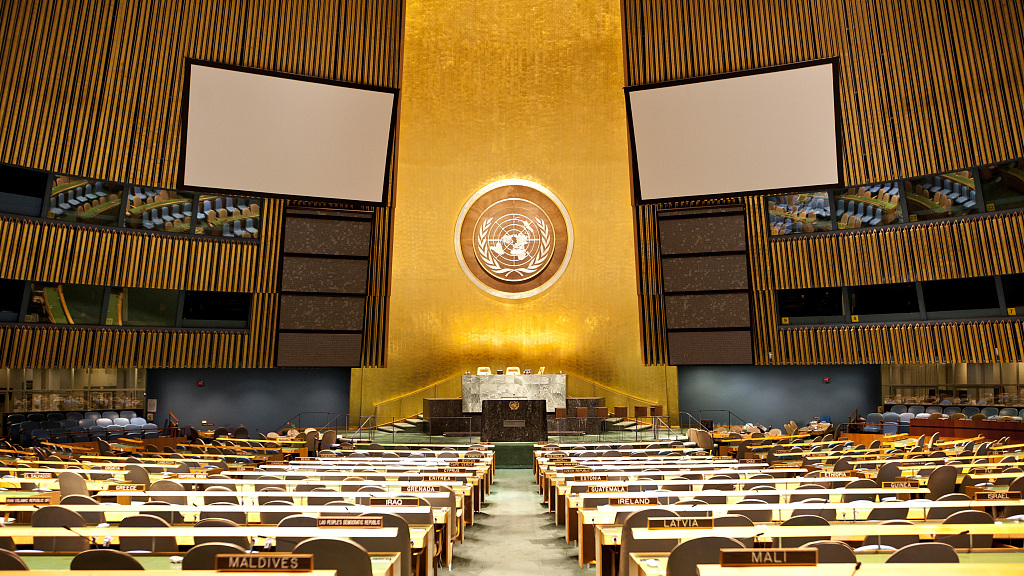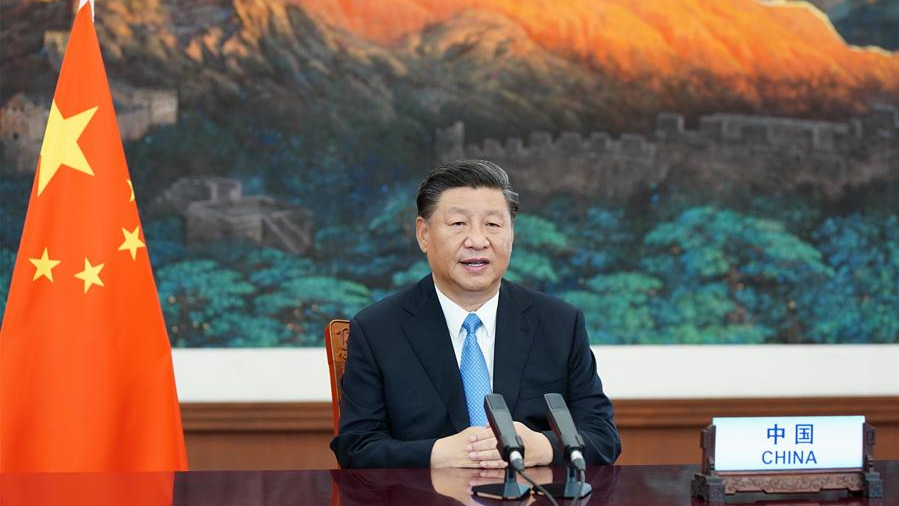
Editor's note: Andrew Korybko is a Moscow-based American political analyst. The article reflects the author's opinions, and not necessarily the views of CGTN.
Chinese Foreign Minister Wang Yi recently gave an overview of Chinese President Xi Jinping's 2020 activities at this year's UN General Assembly. He framed everything through the prism of what's known in China as Xi Jinping Thought on Socialism with Chinese Characteristics for a New Era and particularly Xi Jinping Thought on Diplomacy. Everyone's understanding of China's perspective on global affairs and the driving motivations behind its international behavior would be greatly enhanced by reading his overview in full.
Three of the most important points that deserve special analysis are the country's views on reforming the global governance system, assisting the global economic recovery, and its support of the core role of the UN. International Relations are undergoing unprecedented changes at the moment which precede the COVID-19 pandemic but were greatly accelerated by it. Instead of the world coming closer together, however, the U.S. – its most recent hegemony – is pushing back against multilateralism in order to aggressively advance its interests.
It's for this reason why President Xi reminded the world of the importance of the UN Charter and all that entails. Sincerely abiding by the rules-based international order is a must, without which these chaotic processes will become uncontrollable and therefore detrimental for all. It's here where the importance of win-win cooperation is so crucial since a community of a shared future for mankind veritably exists and everyone thus has equal stakes in the outcome of this global systemic transition.
The self-interested, reckless, and globally destabilizing actions of a single country mustn't hold back the international community. That's why President Xi appealed to everyone to work more closely together to surmount the series of crises that the present year has brought. Non-traditional security challenges such as public health, made all the more acute by U.S. unwillingness to cooperate with the World Health Organization to this end, must also be given priority by all for the safety of every country's citizens.
Equally important is assisting the global economic recovery otherwise billions of people might remain trapped in their newfound poverty caused by the world's uncoordinated response to containing COVID-19 and thereby reverse the historic improvement of living standards over the past three decades. Openness and integration, President Xi believes, must take precedence over what many have described as the U.S.'s protectionist policies and intent to "decouple" the country from China.

Chinese President Xi Jinping addresses the General Debate of the 75th session of the UN General Assembly via video, September 22, 2020. /Xinhua
Chinese President Xi Jinping addresses the General Debate of the 75th session of the UN General Assembly via video, September 22, 2020. /Xinhua
Globalization's problems exist and must be addressed, though in close cooperation with all states, not through the unilateral will of one at the expense of all others. Trying to reverse the course of history by returning to the era prior to globalization's onset will not only destabilize the world even more than it already is, but risks provoking more distrust, exacerbating poverty, and potentially even worsening the already fraught situation of global security. It must therefore be avoided at all costs and the world must move forward, not backward.
The philosophy of win-win cooperation should guide the world's economic recovery. It's impossible to "decouple" economies that have spent decades integrating with one another. Globalization is a done deal, just like the nation-state system is, and it won't disappear just because of the whims of one or another country's leader. Taking this into account, the only realistic policy to be promulgated is one of multilateralism whereby all countries consult with one another to work out their differences, improve trust, and deepen their integration.
The third aspect that's most important to analyze about President Xi's vision of the future and China's leading role within it is the support that his country has given to the UN. Without abiding by the rules-based system, which reduces uncertainty by making disputes more manageable and therefore promotes peace between nations, human society will descend into chaos. The historic advances of the past decades, perhaps even centuries, might be temporarily lost as the world plunges into a new dark ages that would harm everyone.
Thankfully, China is leading by example in the sense of having become the world's second largest contributor to the UN budget and having dispatched more peacekeepers to UN missions than any other permanent member of the UN Security Council. This is helping to stabilize the world, especially the Global South, during this difficult period of global systemic transition. The U.S. would do well to follow China's lead in order to improve their collective capabilities and thus make the world a better place for everyone through their joint leadership.
In conclusion, Foreign Minister Wang's overview of President Xi's activities during the 2020 UNGA articulated the political theories that guide China's behavior in contemporary international relations. These are important to keep in mind in order to better understand the philosophy which is responsible for its rise as a global leader. Even more significantly, the path that the People's Republic of China pioneered isn't exclusive to China, but can be followed by all peace-loving nations of the world to help all of humanity.
(If you want to contribute and have specific expertise, please contact us at opinions@cgtn.com.)